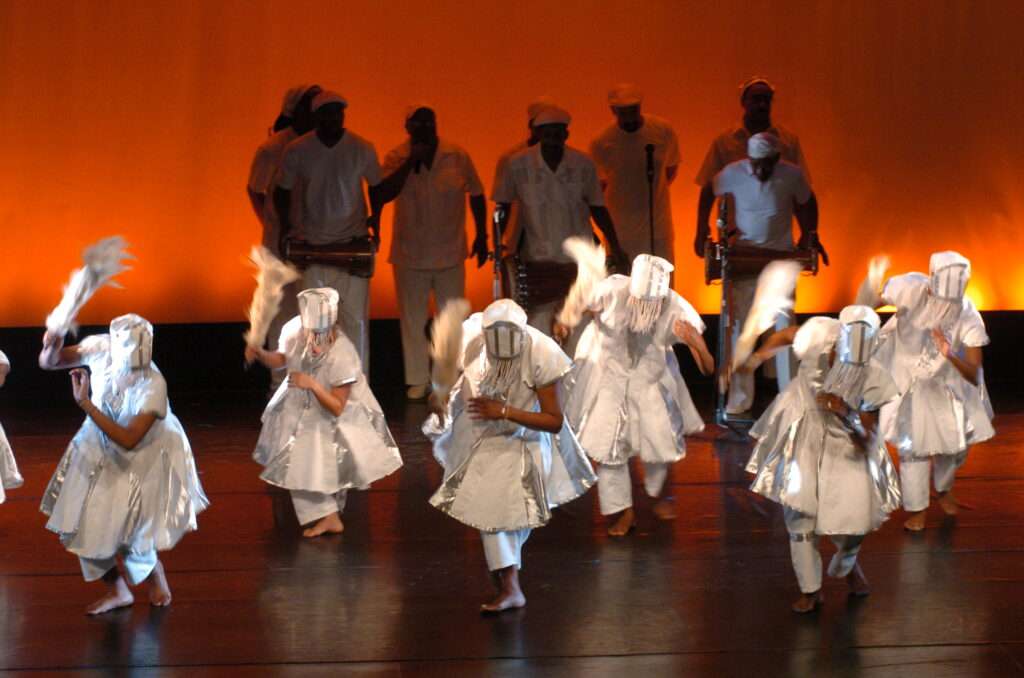African and Latin Roots

Afro-Latino music ensemble encompasses a diverse array of musical styles that reflect the Afro-Latino heritage and cultural identity of individuals with African and Latino roots. This genre is a fusion of African rhythms, melodies, and instruments with Latin American musical traditions, creating a rich tapestry of sounds that celebrate the shared histories and contributions of Afro-descendant communities in Latin America and the Caribbean.
The significance of Afro-Latino music lies in its ability to showcase the resilience, creativity, and cultural richness of Afro-Latino communities, highlighting their unique musical expressions and the ways in which they have shaped Latin American music and culture. Afro-Latino music serves as a vehicle for storytelling, resistance, and healing, connecting people across borders and generations through its powerful rhythms and messages.
The purpose of Afro-Latino music is multifaceted. It serves as a means of cultural preservation, reclaiming and celebrating the African roots of Latin American and Caribbean music while also promoting social justice, racial equality, and cultural pride. Afro-Latino music brings visibility to Afro-Latino artists, musicians, and activists, amplifying their voices and contributions to the global music scene.

Resurgence of Afro-Latino Music
In recent years, there has been a resurgence of Afro-Latino music in the mainstream pop music scene, with artists blending African and Latin influences to create unique and captivating sounds. Some current examples of pop Afro-Latino music include:
Rosalia – The Spanish singer-songwriter infuses flamenco and urban pop with elements of Afro-Latin rhythms in her music. Songs like “Con Altura” featuring J Balvin and “Malamente” showcase her innovative approach to blending different musical styles.
J Balvin – The Colombian reggaeton artist often incorporates Afro-Caribbean beats into his music, giving his songs a distinctive sound that appeals to a global audience. Tracks like “Mi Gente” and “Dorado” are great examples of his Afro-Latin fusion.
Rauw Alejandro – The Puerto Rican singer blends reggaeton, trap, and R&B with Afro-Latin influences in his music. Songs like “Todo De Ti” and “Tattoo” showcase his creative approach to incorporating Afro-Latin rhythms into his sound.
Nathy Peluso – The Argentine singer and rapper infuses elements of jazz, soul, and Afro-Latin music in her eclectic sound. Tracks like “Buenos Aires” and “Sana Sana” highlight her unique blend of musical influences.
Kali Uchis – The Colombian-American singer incorporates elements of soul, R&B, and funk with Afro-Latin rhythms in her music. Songs like “Telepatia” and “La Luz” featuring Jowell & Randy showcase her diverse musical palette.
These artists and many others are pushing the boundaries of pop music by incorporating Afro-Latin influences into their work, creating a vibrant and dynamic sound that resonates with audiences worldwide. Their innovative approach to blending different musical styles reflects the rich cultural heritage and global influence of Afro-Latino music in the contemporary music scene.
Resilience, Creativity and Cultural Legacy
The history of Afro-Latino music is deeply intertwined with the transatlantic slave trade, colonialism, and the blending of African, indigenous, and European cultures in the Americas. From the rhythmic beats of Afro-Cuban rumba to the soulful melodies of Afro-Peruvian music, Afro-Latino music encompasses a wide range of genres and styles that reflect the diverse experiences and influences of Afro-descendant communities across Latin America and the Caribbean. Today, Afro-Latino music continues to evolve and thrive, serving as a testament to the resilience, creativity, and cultural legacy of Afro-Latino peoples around the world.



